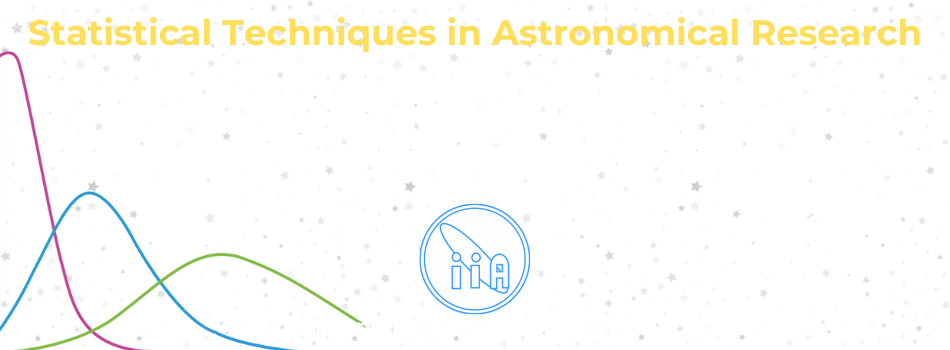Statistical Techniques for Astronomy Research (STAR) is a six-day workshop on astro-statistics for early-career PhD students in astronomy. The school is planned to be held at VBО, Kavalur, from June 30 to July 5, 2025. The objective of the school is to introduce students to modern statistical concepts, tools, and techniques as applied to research in astronomy and astrophysics. The program will include a series of lectures and hands-on activities.
Overview
In modern astrophysics, statistical techniques and machine learning tools are becoming increasingly integral to research. The vast amounts of data produced by astronomical surveys and simulations require sophisticated methods to extract meaningful insights and interpret the results. This requirement cuts across all areas of astrophysics - from cosmology, galaxy formation, stellar evolution, and high-energy astrophysics, to the search for exoplanets, the detection of gravitational waves, and planetary science, statistics play a crucial role. Practitioners of the trade must therefore have a strong foundation in statistical analysis, and also keep updating their skills.
Recent developments in Bayesian inference, Gaussian processes, and machine learning have gained significant importance in analysis and interpretation of the data. This underscores the necessity for the next generation of astrophysicists to gain proficiency in these areas. Despite the growing significance of statistics and machine learning in astrophysical research, many PhD students in astronomy receive minimal formal training in these disciplines. These critical tools are often overlooked in traditional astrophysics curricula, leaving students ill-equipped to handle the data-driven challenges in their research. To fill this gap, we are organising a week-long school for providing essential training in statistics, machine learning and the interface of probability with geometry and topology.
Who can apply?
PhD students working in the field of astronomy, astrophysics and related fields can apply. Preference will be given to students in the early stages of their PhD.
Only limited applicants will be selected for participation based on their academic records and motivation to attend the school.
Accommodation and travel
Students who are selected for the school will be provided free boarding/lodging at the Vainu Bappu Observatory. Accommodations for participants will be provided on a shared basis.
While travel support will NOT be provided , the institute will arrange free transportation between IIA Bangalore and VBO Kavalur.

